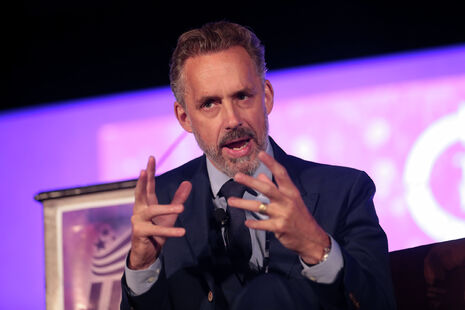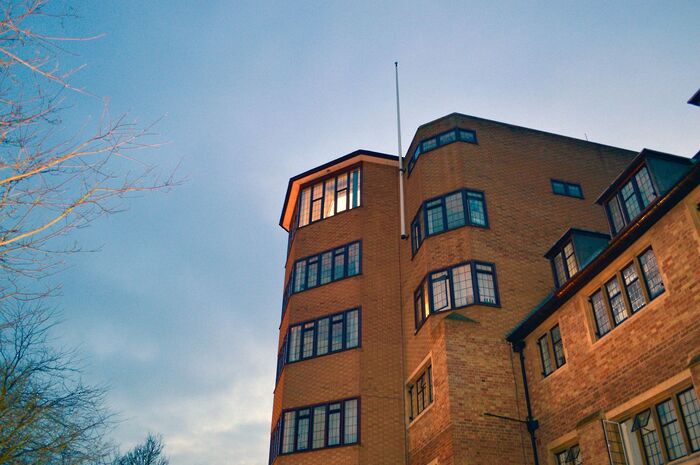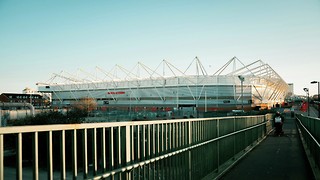Don’t let Cambridge’s Peterson U-turn distract you. It’s just their PR team at work
Cambridge says there is “no place here” for Peterson. But by keeping researchers like Noah Carl on their payroll, they show their commitment to inclusivity is only skin-deep

“Cambridge is an inclusive environment and we expect all our staff and visitors to uphold our principles. There is no place here for anyone who cannot.” So said Cambridge’s statement after news broke yesterday that they had extended a visiting fellowship offer to the controversial professor, Jordan Peterson, before rescinding it after “further review”.
Peterson is one of today’s most high-profile academics. Claiming that we are in a ‘crisis of masculinity’, he has become a household name by giving an aura of intellectual backing to the men’s rights movement. So it is notable that Cambridge chose to rescind the invitation to Peterson of a visiting fellowship, and backed it up with a statement on the University’s “inclusive environment”.
Where was this strong condemnation and public statement of inclusivity when St Edmund’s appointed Noah Carl, a researcher whose work has claimed links between race, criminality, and IQ, to a prestigious teaching fellowship, and the most high-profile appointment this year?
Four months later, despite widespread condemnation and an open letter by at least 586 academics, Cambridge has not made any statements about whether Carl violates their so-stated principles of inclusivity.
While the University may see these controversial appointments as mere PR problems, their consequences are very real. The Cambridge University brand has huge legitimising power, offering a stamp of approval to any research that is associated with it.
Taking one example, Carl’s paper on ‘Net opposition to immigrants of different nationalities correlates strongly with their arrest rates in the UK’ was cited on a myriad of far-right sites including InfoWars and The Daily Caller. When Free West Media ran the story — under the headline ‘Migrants that Britons do not want, happen to be criminal study shows’ — it stated Carl was a (then) “doctoral candidate at the University of Oxford”.
No mention was made of how a reviewer of the paper had outlined five major flaws with it, writing “it is never OK to publish research this bad, even in a inconsequential online journal.”
Yet in the age of Breitbart and Infowars, these “inconsequential online journal[s]” are becoming consequential, especially when they are validated by brands such as Cambridge and Oxford.
Just six days ago, two mosques in Christchurch, New Zealand were targeted by a white supremacist, Islamophobic gunman, killing 50 in total. The gunman had referenced the idea of genetic differences and white supremacist myths around the threat of the ‘violent Muslim invader’.
Although not cited, Noah Carl has published research papers on a non-peer-reviewed site claiming that the percentage of Muslims in a country’s population are positively “associated with Islamist terrorism across Western countries”. His argument that “the higher the percentage of Muslims in the population, the greater the share of citizens susceptible to Islamist radicalisation” plays directly into this myth.
There is no doubt that many of these ideas and myths will exist in the depths of 4chan and 8chan where the attacker appeared to spend much of his time. But whether Cambridge University attaches its seal of approval to these ideas is a choice.
“Cambridge’s PR team played right into Peterson’s playbook”
Yesterday’s rescinding of Peterson’s visiting fellowship, like other controversial appointments, has already been painted as another argument around freedom of speech on university campuses.
These appointments are not free speech issues. Freedom of speech does not entitle anyone to a fellowship. Peterson has the same right to speak as Cambridge has to rescind its offer.
Revoking the fellowship of Noah Carl, as called for by student protesters, would not be giving in to “snowflake students” who want to rid Cambridge of any view that opposes their own. It would be a recognition that Carl’s “research” has been widely discredited and therefore Cambridge University should not allow itself to be used as a brand that gives his work legitimacy.
Universities should be, and almost always are, spaces that are open to debate and academics that hold a range of views. But this does not mean that those peddling myths and clearly flawed research should be given these opportunities.
Cambridge’s PR team played right into Peterson’s playbook: Peterson gets to blame the “diversity-inclusivity-equity mob” for causing an outcry. But in all likelihood, the decision to revoke the invitation preceded any action taken by CUSU, who, from their public statements, only heard about the invitation less than two hours before Cambridge confirmed that they had rescinded it.
By continuing to withhold all information on what motivated them to rescind Peterson’s offer, the University communications team is consciously placing their desire to provide information only on a need-to-know basis above protecting students and staff who have spoken out on the issue from online abuse.
Cambridge is highly image-conscious when it comes to the press, as clearly indicated by the PR offensive after each of these appointments. This awareness must also be given when considering who Cambridge associates itself with. Instead of taking a reactive approach, making appointments that are then rescinded and playing into the false narrative around the lack of free speech on university campuses, Cambridge must think proactively about who it is offering positions to in the first place.
The University’s clear statement on Peterson paints a nice picture: academics with a range of views are appointed, those who clearly contravene its principles of inclusivity are not. But it’s just a nice picture.
Cambridge’s PR team is only called into action when the stakes for the University’s reputation are high enough — when the invited lecturer is a household name, instead of a little-known college research fellow writing methodologically incoherent papers which ‘no one reads’. But clearly, people do.
 News / Cambridge academics sign open letter criticising research funding changes22 February 2026
News / Cambridge academics sign open letter criticising research funding changes22 February 2026 News / Student and union protesters hold ‘Trans Liberation Solidarity Rally’ 24 February 2026
News / Student and union protesters hold ‘Trans Liberation Solidarity Rally’ 24 February 2026 News / Union speakers condemn ‘hateful’ Katie Hopkins speech14 February 2026
News / Union speakers condemn ‘hateful’ Katie Hopkins speech14 February 2026 Features / Beyond the porters’ lodge: is life better outside college?24 February 2026
Features / Beyond the porters’ lodge: is life better outside college?24 February 2026 Theatre / Footlights Spring Revue? Don’t Mind if I Do!25 February 2026
Theatre / Footlights Spring Revue? Don’t Mind if I Do!25 February 2026










